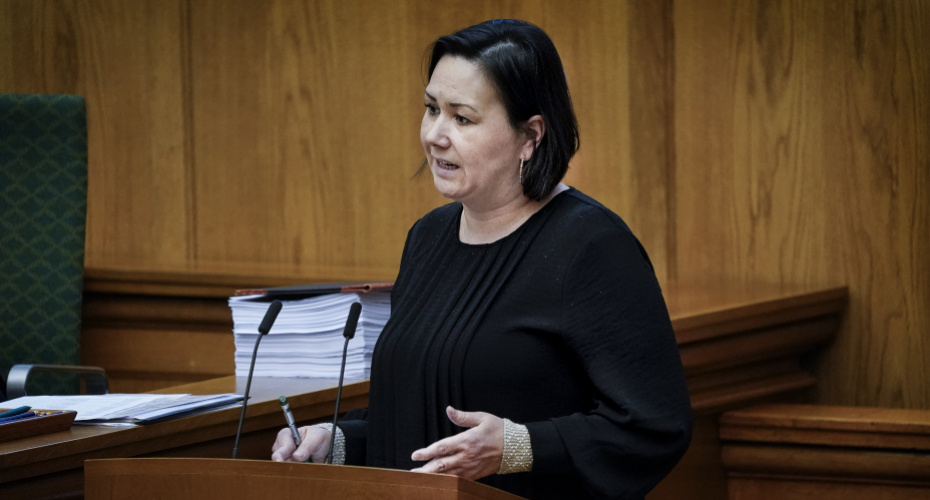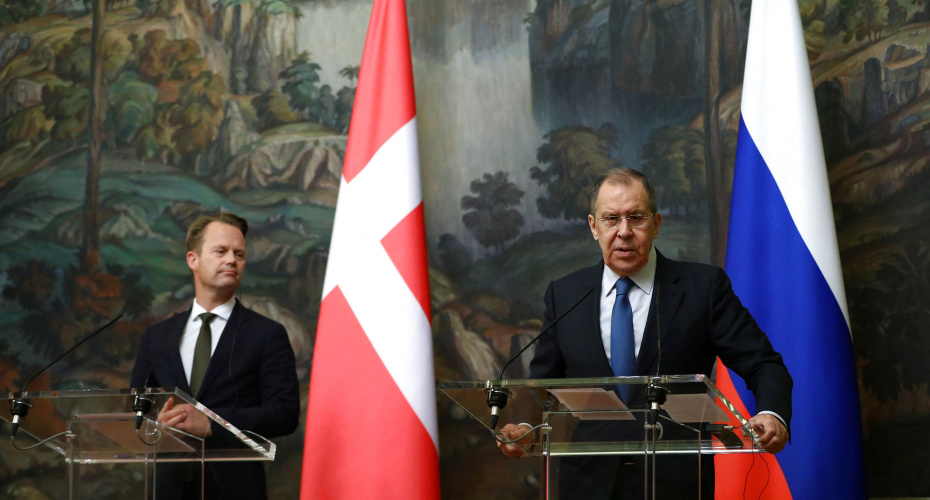In Greenland, the political situation is developing mainly on two fronts currently: In the countryside, that is to say, the bygds („settlements“) where semi-feudality dominates and the masses live in extreme poverty due to the monopolization of the fisheries, and in the political-military situation, since Greenland is an object of the collusion and strife between the imperialist superpowers and powers, in particular Danish, Yankee, Russian and Chinese imperialism.

The opportunist country-seller Aaja Chemnitz Larsen (IA) at the speaker’s chair in the imperialist Danish Parliament.
Regarding the countryside, the representative of the „Inuit People’s Community“ party (IA) in the Danish Parliament, Aaja Chemnitz Larsen, proposed a plan to „naturally close down the bygds and help the population into the city so that the level of welfare can be raised“. She stated:
„Personally, I actually also think that we [the bureaucratic capitalists] should be in fewer places than the around 80 settlements that exist in Greenland today. The cities must be developed, productive bygds conserved and other bygds naturally closed down“.
A major point in this regard was the prevention of „anarchy and lawlessness out in the bygds“. In particular, that the colonial State under direct imperialist control has been completely unable to extend the system of municipal police representatives to the small settlements, and as a result, bureaucratic capitalism cannot be developed there. Aaja Chemnitz Larsen therefore in essence proposes a consolidation of bureaucratic capitalism on a semi-feudal basis in the towns and cities, and a forced migration of the masses from the countryside to the cities to serve as labor force.
On Greenland, the point of the fisheries is extremely important in this regard. The traditional ways of hunting and fishing by the Greenlanders was undermined by Dutch, Norwegian and English traders, before being completely supplanted by the Danes in the 20th Century. At the same time, the slowly developing system of class society on Greenland was replaced with a feudalism imposed by the Danish after 1721, when Greenland was colonized.
So today, what develops is a monopolized fishing industry, the masses in the countryside labor under semi-feudal conditions to serve the fishing industry, the masses in the cities labor for bureaucratic capitalism in the fish-packing factories, and the entire process serves the superprofits of Danish imperialism.
Because of this situation, many masses in the settlements cannot make a living by their traditional ways, which is seen in the supply transportation to Southern Greenland for example, which last week was cynically disrupted, leaving many people to fend for themselves. In this light we should understand the statement of the Greenlandic MP.

Danish imperialist foreign minister Jeppe Kofod (left) and Russian imperialist foreign minister Sergei Lavrov (right) at a press conference in Moscow last friday.
Regarding the political-military situation, after Yankee imperialism was unable to purchase Greenland from Danish imperialism (or exchange it for Puerto Rico!), the Yankees opened a consulate in the capital Nuuk. They did this before, during World War II, when they also attempted to seize the country as their own colony.
Now, as a reaction to the opening of the Yankee consulate some months ago, the Russian imperialist superpower has demanded (and received) an honorary consulate of its own. The Russians already have such a consulate in another Danish colony — the Faroe Islands. This is part of the collusion and strife of the imperialists. Russian imperialism seeks to increase its diplomatic and military presence in the Arctic to counteract the Yankees.
Greenland plays an important role, in the long-term, strategic objective of Yankee imperialism to encircle and isolate Russian imperialism. The war in Syria, the movement of Yankee troops to Eastern Europe, the threats against Iran and the expansion of NATO in general are all part of this strategic plan.










